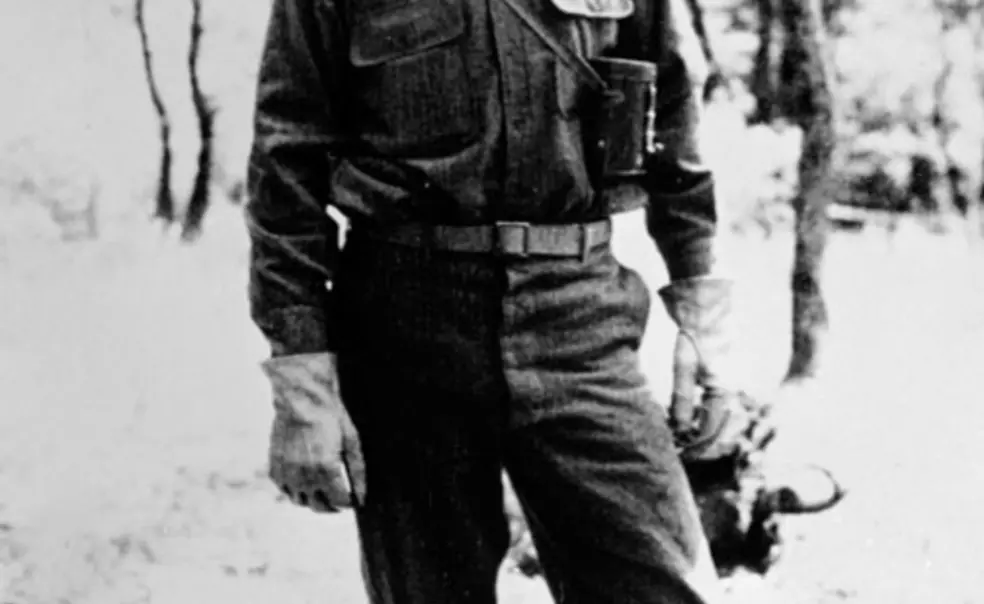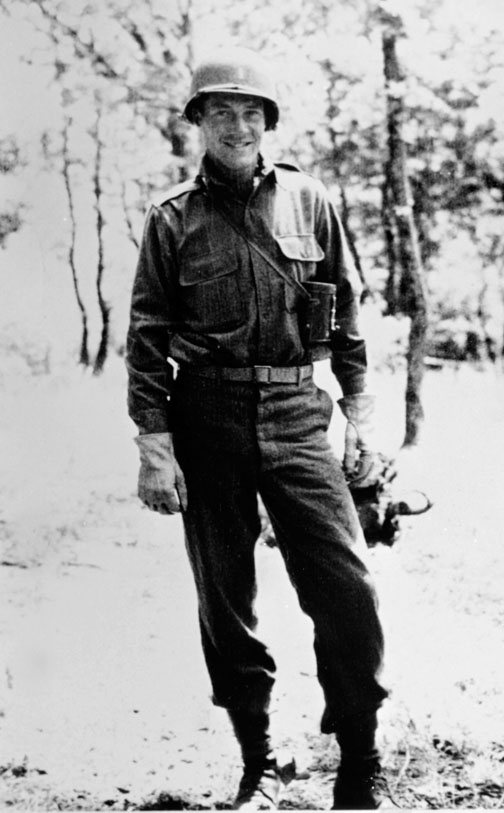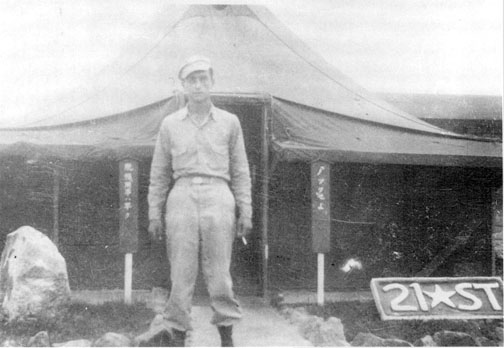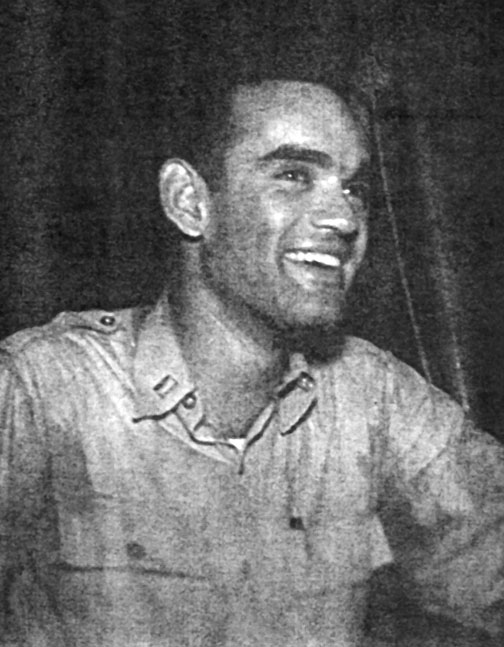Transport ships had just delivered Paul Mailloux ’42 and hundreds of other soldiers in October 1944 to Leyte, an island in the Philippines, to prepare for what would be a major naval battle of World War II. While on the beach, he looked up and saw two Japanese warplanes headed toward the transport ships.
Suddenly, out of the sky came two American P-38 fighter planes to shoot down what may have been among the earliest kamikazes, dropping them away from the American troops.
“After the war, I went to visit one of my Princeton classmates, Hank Toll [’42 *46], who by that time was studying for a master’s in architecture and living on Nassau Street,” said Mailloux, the former president of the pencil and craft manufacturer Eberhard Faber, now retired in Bear Creek, Pa. They started to talk about their war experiences, and Mailloux mentioned the Leyte incident. “Hank said to wait a minute and went to another room,” he recalled. “He came back with a paper, showing he was the pilot of one of those P-38s. He saved my life and didn’t even know it at the time.”
Mailloux’s remembrance of the beach event and the encounter with Toll after the war is one of more than four dozen war stories in a new four-CD audiobook, The Princeton Class of 1942 During World War II: The Individual Stories, released by the class in December. They are culled and edited down from a book of 350 essays classmates wrote about their war experiences that was published in 2000.
“People loved the book, but we felt we wanted to have a fast-flowing four hours that people could listen to as well,” said John D. “Tex” Farrington Jr. ’42, who organized the project. An independent historian, who wished to remain anonymous, chose the memories to be included on the CDs, seeking geographic and thematic variation. Another historian, Richard Ellis, an independent scholar in South Carolina, narrates the stories, which range from the invasion of Normandy on D-Day to heroics behind the lines at the Battle of the Bulge and battles in the Pacific islands.
“We knew we were treading on thin ice when we were leaving many out, but we hope people will understand that it is no slight to their service or their stories,” said Farrington. “More than 85 percent of our class saw combat service. That itself is amazing, and it shows that the Class of 1942 was extraordinary.”
Donald Stroetzel ’42 contributed a story of his own from Leyte. He was commanding a boat that got hit by a “Zero,” the most feared of Japanese fighter planes. His ship limped back to port, having lost half its crew. He disembarked just before it sank.
Stroetzel, who became a journalist and then an oil-company spokesman, said he was happy to relive the memories, even though his experiences were full of harrowing battles and scenes of death and destruction.
“The war was one thing that bound us all together,” he said. “Unlike some of the wars we have had since, this was a war with no questions asked. We were in it, and no one questioned whether we should be in it. Out of that, we had the experiences, some painful, but some extremely joyful. That is what I hear on the CDs.”
Class president Robert Young, a former lawyer in Philadelphia who now lives in Florida, recalled his Army unit’s somewhat-offbeat service. “Our unit was often a bit of a joke. We were always doing something that turned out to be useless,” said Young. The unit, he said, cleaned out buildings in Britain that had been used by the Americans but ultimately weren’t needed for the war effort; then, after being transferred to the Pacific, the unit built POW camps and runways that never were used.
“But I love listening to my classmates’ adventures on the CDs. It brings that time to life,” said Young. “There are guys who landed in Sicily” in 1943 for the invasion that retook Italy, he said, and “someone who got hidden by people in Yugoslavia” after being shot down on a mission behind enemy lines, as well as memories of D-Day.
“This is not painful, but nostalgic,” he said. “It was a different time, and with the CDs, as with the book before it, our children and grandchildren will be able to know what we all did in those important times.”
Robert Strauss is a writer in Haddonfield, N.J.
The Class of 1942’s four-CD audiobook is available for $25 through Tex Farrington, 9 Baynard Peninsula, Hilton Head, S.C. 29928 (make checks payable to “Princeton 1942 audiobook”).















1 Response
Tex Farrington ’42
10 Years AgoEx-president's thanks
Our Class of 1942 has copied any public figure mentioned in our World War II book and the new audiobook (Alumni Scene, Feb. 24). Thus, a letter and an audiobook were sent to the George H.W. Bush Presidential Library. I wrote that his proclivity for jumping out of airplanes on his birthday truly encouraged us to proceed with the project in our 90s. Besides, he was “good for the morale of us oldsters.”
The Yale gentleman overlooked the copy of the 1942 beer jacket logo, featuring four bandages on a bulldog’s back, and sent this gracious reply:
... Your stories touched at my heartstrings, and that I gave a “boost” to your “morale” really makes me happy. Congratulations on a job well done in creating this audio.
Not a day goes by that I don’t think of my Navy days and the extraordinary men with whom I served. The last of my close friends from those days has now gone to heaven, but he and all of those great Americans live in my heart.
Thanks so much for your letter and, more importantly, for your service to our country. Please also convey my thanks and respects to the other Princeton Class of 1942 “oldsters.”
Sincerely, George Bush